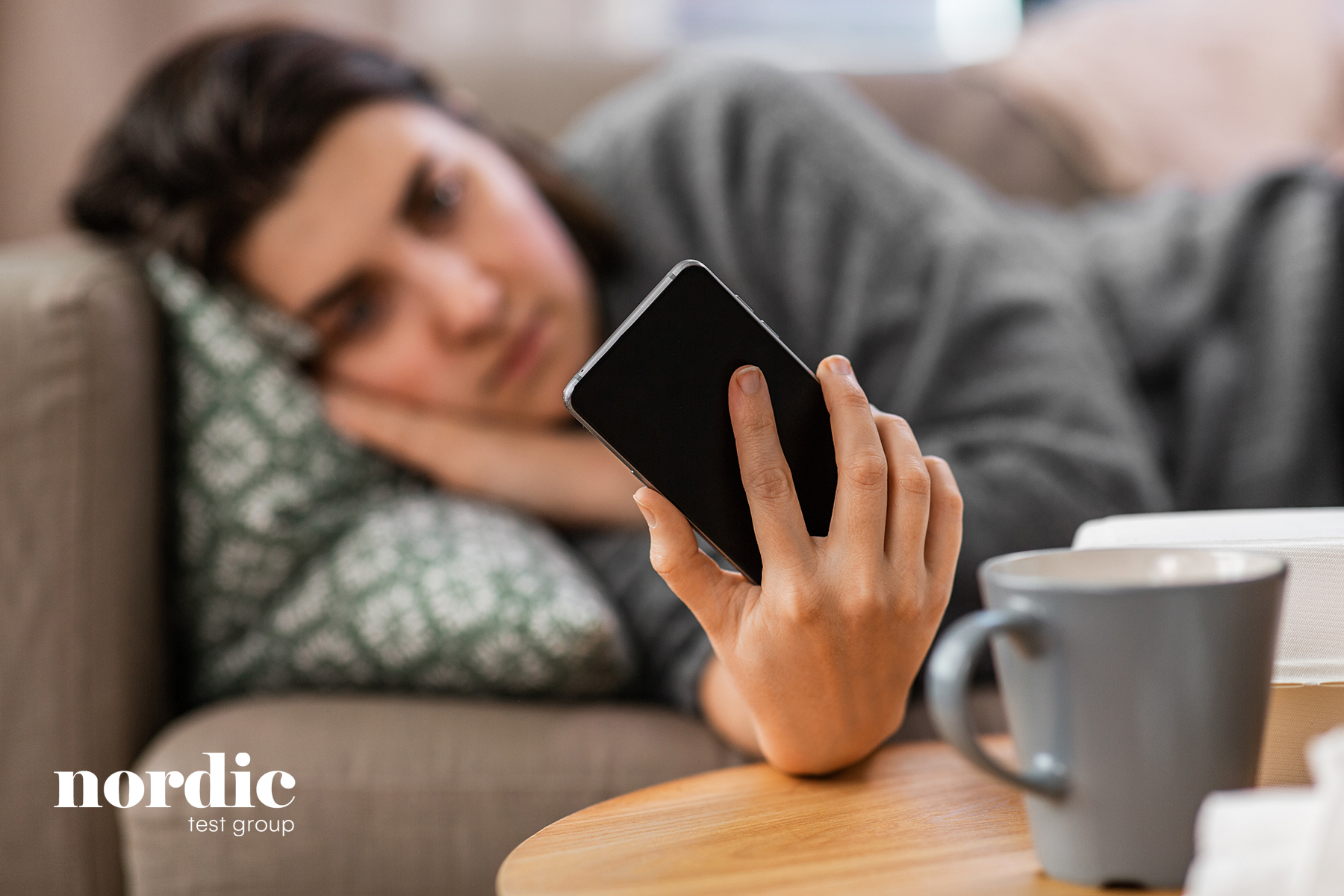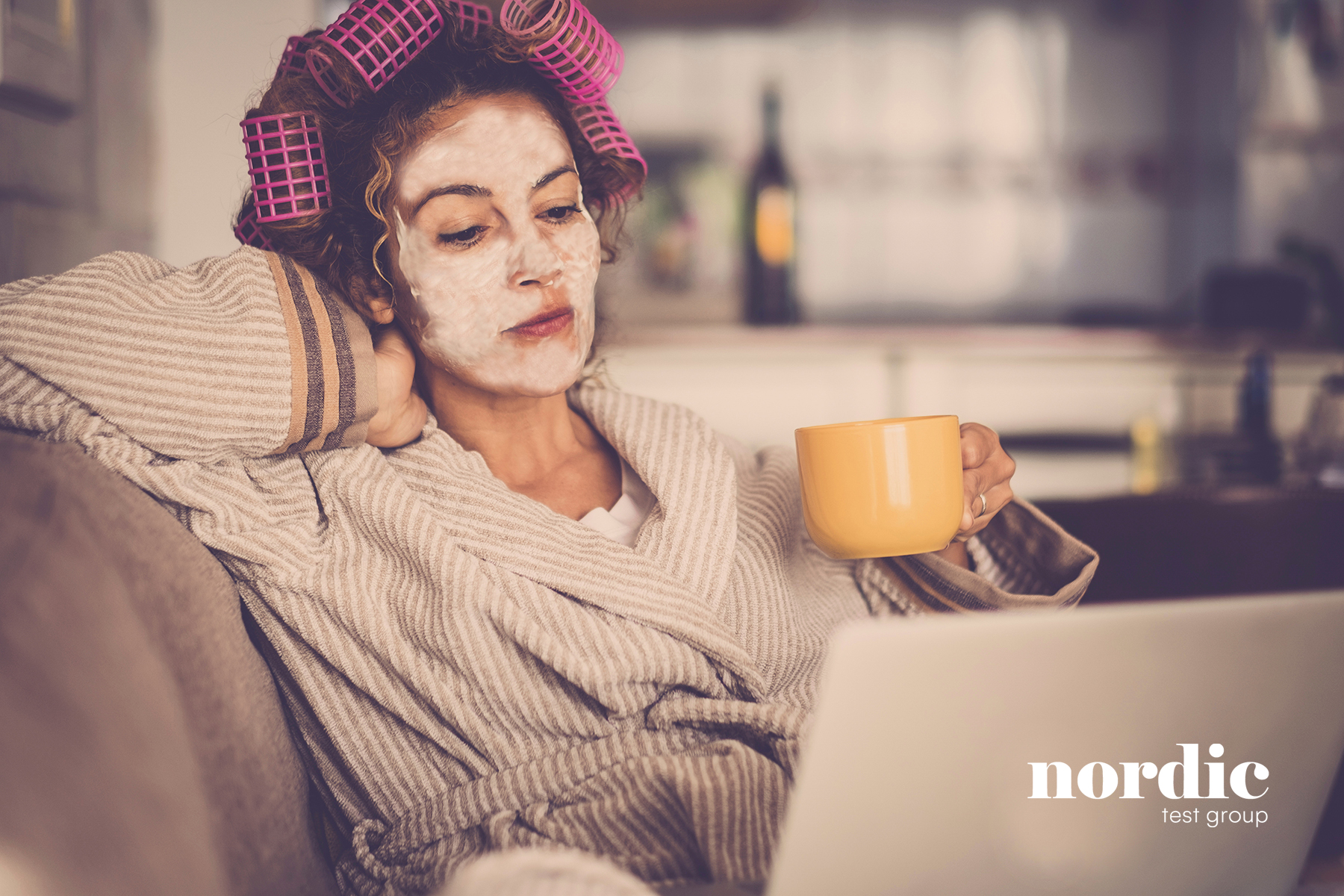Do I Need to Isolate If I Test Positive?
Published 2023-12-18 00:31 by Nordictest
A positive test result may very well require you to isolate, but first, you must seek medical care to confirm if it is a notifiable disease and if you should not be around other people. Let's clarify which diseases are considered notifiable, so you know when to contact healthcare to determine how to handle your test result.
Some common infectious diseases include:
- Chlamydia
- Salmonella
- Gonorrhea
- Syphilis
- HIV
- Hepatitis (A, B, and C)
- Tuberculosis
If you suspect any of these diseases, Swedish law requires you to get tested unless a doctor assesses that your symptoms do not indicate the notifiable disease.
So, it's not that you are obligated to test for the disease just because you think you have symptoms of salmonella. But if you have a phone consultation with a doctor and are advised to take a chlamydia test or a test for gonorrhea, you must do so.

Should You Isolate or Not?
Whether you should isolate after a positive test depends on how you receive instructions from an infectious disease physician. When you get a positive result from a home test, you should contact healthcare.
If it concerns a notifiable disease, you may be forced into isolation if you refuse treatment or fail to follow the instructions given by the infectious disease physician. In fact, disregarding isolation or other important instructions meant to stop the spread of the disease can have legal consequences.
If a person tests positive for HIV or syphilis and subsequently infects someone else with this knowledge, it can lead to charges and convictions for assault.
During the COVID-19 Pandemic, Everyone Became Familiar with the Concept of Isolation
During the COVID-19 pandemic that swept the world in 2020, isolation became a household term. Previously, isolation after a positive test primarily concerned notifiable diseases and individuals who failed to take measures to prevent the spread of infection. However, the pandemic brought new guidelines for symptoms that also characterize diseases like strep throat, which are not notifiable.
Since then, if you start experiencing sore throats and cold symptoms, you may be suspected of carrying the coronavirus and should stay home to avoid infecting others.
In January 2022, changes were made regarding positive COVID-19 tests. Since then, a five-day home isolation is in effect starting from the day the person who tested positive developed symptoms. The exception to this rule applies to individuals who have received three COVID-19 vaccinations and those who have had COVID-19 in the past three months.
People in key roles for essential societal functions do not need to isolate as long as risk-reduction measures are implemented.
This is important information for those who suspect illnesses resembling COVID-19. If you receive a negative test result for strep throat, it might be necessary to test for COVID-19, especially if you haven't received three vaccinations or haven't had the disease in the past three months.

Home Tests Are Praised During the Pandemic
One positive development during the pandemic, concerning all forms of infection risks and efforts to mitigate them through isolation and proper treatment, is the increased attention given to home tests, thanks to the COVID-19 pandemic.
During the epidemic, authorities realized that home tests were an effective way to act quickly and avoid contact through isolation. Home tests function as a brake on the spread of infection and can also reduce the burden on healthcare. The same can be said for tests for notifiable diseases that you can take at home.
Isolation or Not?
Now, you don't need to worry about committing a crime if you suspect infection and haven't tested yet. A home test is easy to obtain, and as soon as you know whether you have contracted a notifiable disease or not, you can consult an infectious disease physician over the phone or even via online chat.
This is sufficient to determine the necessary steps. In most cases, isolation won't be necessary. For most notifiable diseases, there are treatment protocols and a good understanding of when there is a risk of transmission and when there isn't.
Furthermore, you are likely interested in knowing when you should avoid close contact with loved ones to prevent spreading the infection. So, forced isolation is unlikely, as you will most likely do what is necessary to stay well and avoid making others sick!
